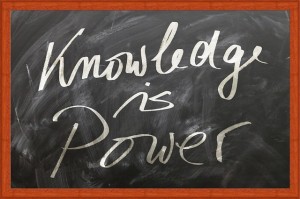For eight long years, a group of researchers in the United Kingdom have been conducting surveys and studying the behavioural patterns of gamblers. The UK Gambling Report, which covers research collected from 2008-2014, was released by the Commission this week.
 According to the report, the research team has been conducting quarterly surveys every year since 2006. The UKGC commissioned the team late last year to incorporate all of their data into a 6-year study (2008-2014) to “explore trends in gambling participation, including individual gambling activities, modes of participation and frequency.”
According to the report, the research team has been conducting quarterly surveys every year since 2006. The UKGC commissioned the team late last year to incorporate all of their data into a 6-year study (2008-2014) to “explore trends in gambling participation, including individual gambling activities, modes of participation and frequency.”
 OnlinePokerRealMoney.co.uk tries to dispel some legal confusions stemming from passage of George Bush's UIGEA of 2006 . Federal status seems to depend on interpretation of the wire act and other laws which were crafted many years ago and which remained high level in nature. The United Kingdom has much clearer laws including their own real money gambling commission .
OnlinePokerRealMoney.co.uk tries to dispel some legal confusions stemming from passage of George Bush's UIGEA of 2006 . Federal status seems to depend on interpretation of the wire act and other laws which were crafted many years ago and which remained high level in nature. The United Kingdom has much clearer laws including their own real money gambling commission .
The results indicated that, over the course of the study, there was no “significant variation” in UK gambling trends, including participation levels, but that “some underlying trends” were discovered.
Increased Trends in UK Gambling Sector
The following is a list of all gambling behavioural patterns that the report revealed to have increased in the last 5 years.
Participation
– Remote gambling participation in general
– Other lotteries, other betting
Participant profile
– AB social grade participation
– Female participation in gambling other than National Lottery draws
Frequency
– High frequency gamblers
Decreased Trends in UK Gambling
This list reveals gambling trends that have seen a decrease over the last 5 years.
Participation
– National Lottery draws, dog race betting, spread betting, fruit and slot machines, virtual gaming machines at a bookmaker’s, bingo, poker at a club or pub
Participant profile
– Gambling participation of individuals aged over 55
Number of activities
– Average number of activities undertaken by male gamblers
It should be noted that, among the increases and decreases in UK gambling participation, frequency and age/gender groups, the rate of change across all categories was miniscule, never exceeding 3%, except for the case of remote gambling.
Remote (Online) Gambling Participation Up 50%
According to the UK gambling report, “Remote gambling participation has increased by approximately 50% over the last six years, from 9.7% in the year to December 2008, to 15.4% in the year to December 2014.”
On the surface, a 50% increase in online gambling activities may seem like a large jump, but not when all factors are considered.
For instance, in 2008, only 56% of UK households actually used broadband Internet. By 2014, that number had jumped to 83%. It’s also worthy to note that mobile devices such as smartphones and tablets simply didn’t possess the advanced technology that they do today. But the report failed to mention any of that information.
What the UK Gambling Report Teaches Us
The UK gambling report primarily focused on rudimentary data, like the fact that men are slightly more likely to gamble than women, especially when they’re not (nor ever have been) married. There’s also a trend towards more frequent and diverse gambling activities between the age of 18-35, whilst ages 35 and up tend to lean towards horse betting and lotteries.
One no-brainer that the UK gambling report elucidated was that people with a higher level of education, particularly a university degree, are more prone to gamble, and to gamble higher amounts of money.
Again, the study failed to reference the fact that these types of people are not only going to be better at calculating odds and making intelligent decisions—especially in games like poker and blackjack—they also tend to have higher ranking jobs that give them access to more extra spending cash to gamble with.
All in all, there’s been very little change in the UK gambling industry or the number and age range of players that participate in such activities. The only notable entry was the to-be-expected increase in online wagering.
